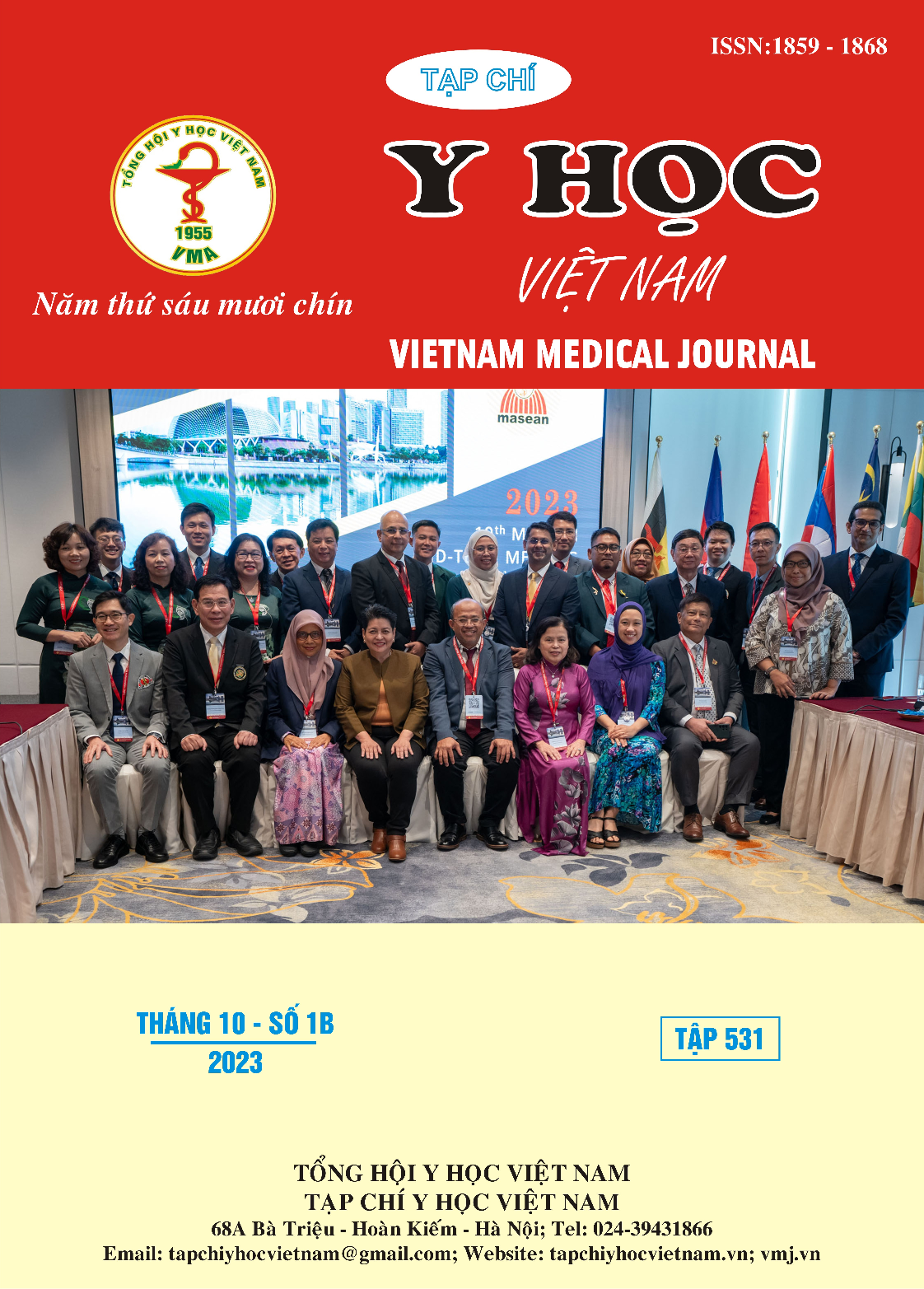DIABETES DISTRESS IN TYPE 2 DIABETES UNDER 60 YEARS OLD
Main Article Content
Abstract
Objectives: Evaluation of diabetes distress in patients with type 2 diabetes under 60 years old and some related factors. Research method: A cross – sectional study was including T2D inpatients at service department of National Hospital of Endocrinology, aged between 18 to 60 years, between August 2022 to July 2023. The study used Vietnamese version of Diabetes Distress scale (DDS) including 17 items. The means total distress score was calculated on the average of 17 items. A mean score of equal to 2.0 or higher was classified as moderate to severe distress. Descriptive statistic were performed by frequency and percentage, calculate Odds Ratio (OR) and Confidence Interval, (CI) p < 0.05 was considered statistically significant. Result: Atotal of 119 participants. The study showed that 68.8% of them were unstability nercrotisim; 34.5% and 24.45% of them being moderately or highily distress, respectively; distress in emotional burden was highest (65.5%). Diabetes distress has been found to be significantly associated with poor economy(OR: 3,3 CI95% 1,1-11,5), poor glycemic control (OR: 54, CI95% 1,6-17,8), complications, severe hypoglycemia, poor diet adherence (OR 3,1 CI95% 1,5-6,6) and regularly adherence, unstable personality(OR: 3,8 CI95% 1,5-9,4) (p < 0.05). Conclusion: The prevalence of stress is high in patients with diabetes under the age of 60. Poor economy, poor diet and regularly adherence, multiple complications(OR: 3,3 CI95% 1,1-17,8), poor glycemic control and unstable personality increase the risk of diabetes stress.
Article Details
Keywords
diabetes distress, type 2 diabetes, under 60 years old, diabetes distress scale 17 items, Vietnam.
References
2. Polonsky WH, Fisher L, Earles J, et al. Assessing psychosocial distress in diabetes: development of the diabetes distress scale. Diabetes Care. 2005; 28(3):626-631.
3. Canadian Diabetes Association Clinical Practice Guidelines Expert C, Robinson DJ, Luthra M, et al. Diabetes and mental health. Can J Diabetes. 2013; 37 Suppl 1:S87-92.
4. Canadian Diabetes Association. Using the Diabetes Distress Scale [accessed on 17 May 2018. guidelinesdiabetesca. http://guidelines. diabetes.ca/ cdacpg_resources/Using-DDS.pdf.
5. Ong Phuc Thinh, Huynh Ngoc Van Anh, Do Thanh Tung, et al. Translation and cross-cultural adaptation of the Vietnamese version of the Diabetes Distress Scale. University of Medicine and Pharmacy at Ho Chi Minh City. 2018; 2(3):5-11. http://www.medpharmres.vn/.
6. Giao Huynh, Thien Thuan Tran, Thi Hoai Thuong Do, et al. Diabetes-Related Distress Among People with Type 2 Diabetes in Ho Chi Minh City, Vietnam: Prevalence and Associated Factors. Diabetes, Metabolic Syndrome and Obesity: Targets and Therapy. 2021; 14: 683–690.
7. Wong EM, Afshar R, Qian H, et al. Diabetes Distress, Depression and Glycemic Control in a Canadian-Based Specialty Care Setting. Can J Diabetes. 2017; 41(4):362-365.
8. Hu Y, Li L, Zhang J. Diabetes Distress in Young Adults with Type 2 Diabetes: A Cross-Sectional Survey in China. J Diabetes Res. 2020; 2020: 4814378.
9. Hemavathi P. SK, Smina T. P. And Vijay V.*. Assessment of diabetes related distress among subjects with type 2 diabetes in South India. Int J Psychol Couns. 2019; 11(1):1-5. D4E41C859902.
10. Aljuaid MO, Almutairi AM, Assiri MA, et al. Diabetes-Related Distress Assessment among Type 2 Diabetes Patients. J Diabetes Res. 2018; 2018:7328128.


